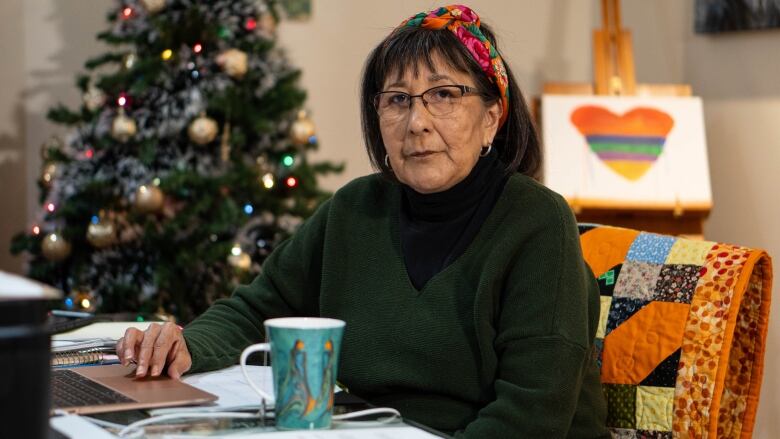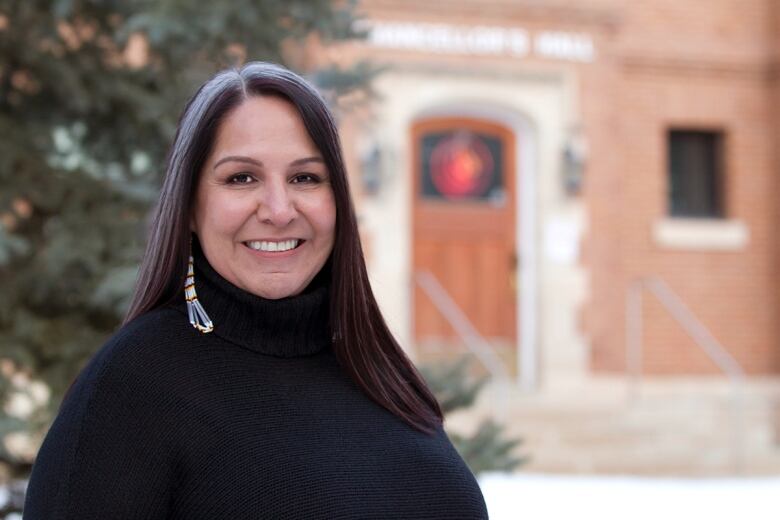Catholic order says it will open up residential school records in Rome but survivor remains skeptical
Missionary Oblates of Mary Immaculate operated 48 residential schools in Canada

A Catholic order that ran residential schools across Canada now says it will open up its archives in Rome to the National Centre for Truth and Reconciliation (NCTR).
This is welcome news for survivors, many of whom have long calledfor the Missionary Oblates of Mary Immaculate and other Catholic entities to make their records available.
Survivor Evelyn Korkmazsays she remains skeptical, though.
"The devil is in the details. We have to know the details before anybody agrees to releasing these documents," said Korkmaz, asurvivor of abuse at St. Anne's Indian Residential School in Fort Albany, Ont.
She wants access to her own student records, as well as journals and other archives, so she can trace her experience at the school.
"We've been disappointed in the past. So I don't want to get my hopes up and get these documents and find out that they were redacted," said Korkmaz.
A joint statement between the NCTRand the Oblates, released on Tuesday, said the religious order will grant "full access to critical residential school records."
The Oblates operated 48 residential schools in Canada, including the Marieval Indian Residential School in Cowessess First Nation in Saskatchewan and the Kamloops Indian Residential School in Tk'emlps te Secwpemc First Nation in B.C., where unmarked graves have recently been identified.

The centre's executivedirector, Stephanie Scott, said she's had recentdiscussions with Oblate Father Ken Thorson about access to the records and he offered an opportunity to "investigate their archives, find some research, see what's available."
"There could have been letters written that ended up in Rome that are there, so we're going to find out what truly exists," said Scott.
Those records belong to Canada. They belong to the people first and foremost.- Brenda Macdougall, University of Ottawa
The Oblate leadership is now seeking the most appropriate way to figure out what documents may exist, and to ensure documents related to Oblate involvement in residential schools might be made available, ThorsontoldCBC in an email.
He said documents will not be redacted and "any records from residential schools found in this processwould be returned to Canada."
"We are looking to the [centre] for guidance in the development of an appropriate third-party process to facilitate this preliminary work. We anticipate being able to share more about this in the near future," said Thorson.
No longer in this country
In November, CBC reported that researchers in Ottawa had uncovered new evidence to suggest some archival records relating to residential schools in Canada are now only available in Rome.
"The records that we had looked at here are no longer in this country," said Brenda Macdougall, a professor and research chair in Mtisfamily and community traditions at the University of Ottawa.
She and a research colleague made the discovery when updating an academic article.
"Those records belong to Canada. They belong to the people first and foremost. They have to come back through subpoena or the Church. The Pope himself can suspend canonical law and return them," Macdougall told CBC in November.
The National Centre for Truth and Reconciliation already holds close to 7,000 survivor statements and more than five million records, said Scott.
She said there's a commitment to finding all residential school records "no matter where they are located or how long it takes."
With files from Olivia Stefanovich












_(720p).jpg)


 OFFICIAL HD MUSIC VIDEO.jpg)
.jpg)



























































































